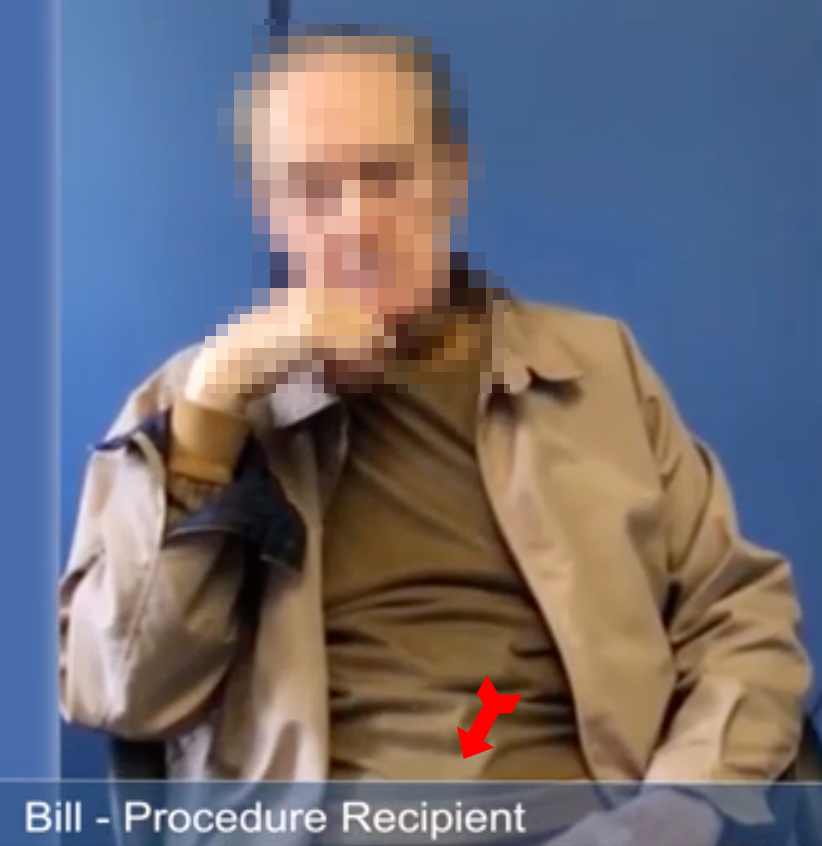The quotation is from Ron ‘Tater Salad’ White, a charter member of the Blue Collar Comedy Tour.
Sometimes you just have to speak up. Today is one of those times. Both Dr. Wells and I have written about the various phrases used to describe physicians; provider comes readily to mind. It is a demeaning term and for many of us, is symptomatic, of the incremental belittling of our profession and our relationship to our patients.
As I sat talking with my wife, the television quietly in the background, during those hours when my peeps, the seniors, are the major demographic – the hours from 5 to 8, beginning with the Early-Bird specials and ending as we move to our “stories” on demand, after all, who can stay up to 9 or 10, even for Game of Thrones? But as I watch one of the local ads for pain management, I learned a new term that I wish to share with you. Just as physicians have morphed into providers, patients, at least according to the Arthritis and Knee Pain Center of New York, are now procedure recipients. Here is a screen grab from one of their commercials, I have blocked the patients, I mean procedure recipient’s face on the off chance that HIPAA regulations apply to them as they do to patients.

Bill seems like a nice guy and he indicated that his procedure, injecting a viscosupplementation, a medical term for lubricant, into his aching joint helped. The American College of Rheumatology’s 2013 guidelines, “neither recommended or discouraged [this treatment] because of the inconsistency of clinical studies.” But I digress.
From the perspective of language, the provider is now joined by the procedure recipient. The entire enterprise of medicine has been reduced to I give; you take – the simplest of transactions and with no messy responsibility on my part, after all, you are the recipient. It makes me wonder whether I would be liable for a malpractice action? I know it covers my patients to whom I have legal and moral obligations; but what about to a recipient; it seems so passive.
To be fair, part of this conundrum falls upon us physicians, health givers(?), providers. Many of us consider ourselves proceduralists, focusing on doing whether it is looking with scopes into people’s stomachs and colons, or putting tiny catheters into their arteries. Proceduralists do, other providers manage the procedural recipient’s other needs or concerns. For example, a patient with a hip fracture or exacerbation of their heart failure is routinely admitted by a hospitalist, not an orthopedic surgeon or cardiologist, respectively.
In today’s medicine, you got to have a procedure; greater financial rewards are to be found there. We say that primary care is essential, and then pay them less than any physician who does procedures. Same for our concern for the children, pediatricians are routinely at the bottom of the pay spectrum. The disparity in reward for doing over thinking is why you see hair removal procedures and botox injections in a variety of medical practices. And in those cases, where the payment for the procedure is low, you often get even better payment for providing the facility for the procedure – should it be surprising that physician-owned outpatient procedure centers can be a substantial source of income? [1]
Well, I feel better now, having reported this update to healthcare’s new vocabulary. Time to return to work. “Number 43, who is number 43? Laser hair removal, no problem. Do you want emollient with that, it’s only a $30 upgrade?”
[1] Payments for medicine’s procedural care has two components; the professional fee paid to the person performing the procedure, and a facilities fee, to cover the cost of supplies and maintaining the site where the procedure was performed, e.g., hospital, outpatient setting, or office. But before looking askance at care delivered outside the hospital, I hasten to point out that this is usually not a bad deal. Physician owned and operated facilities are models of efficiency and care; after all, it is their reputation, malpractice coverage, and bottom line.




